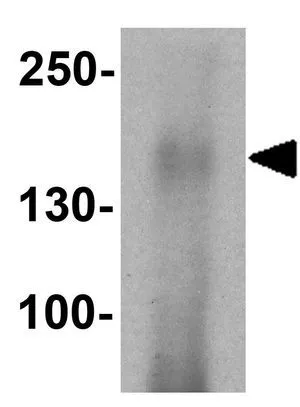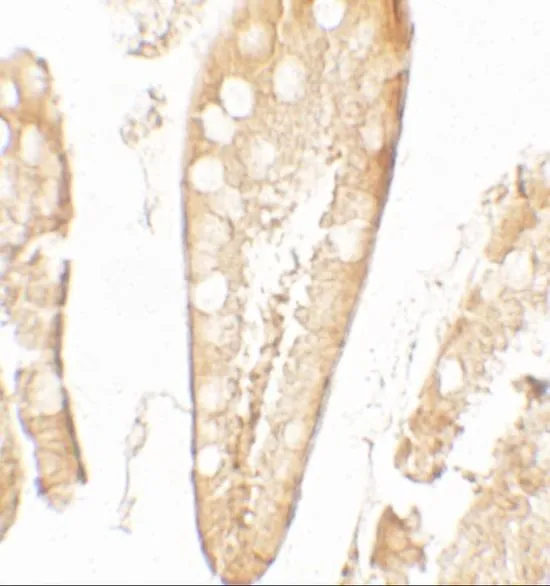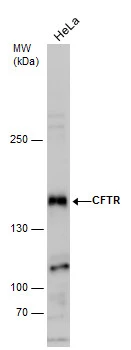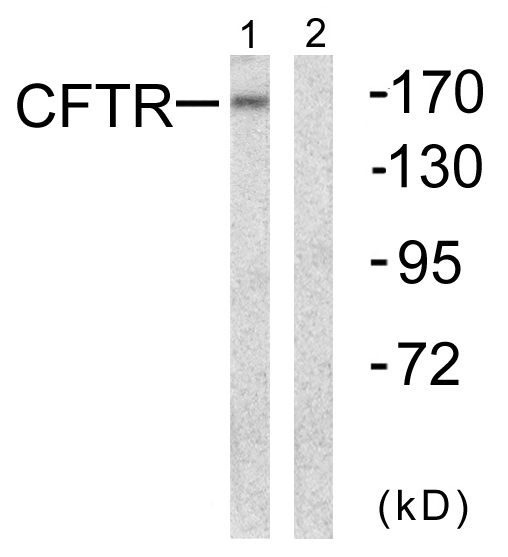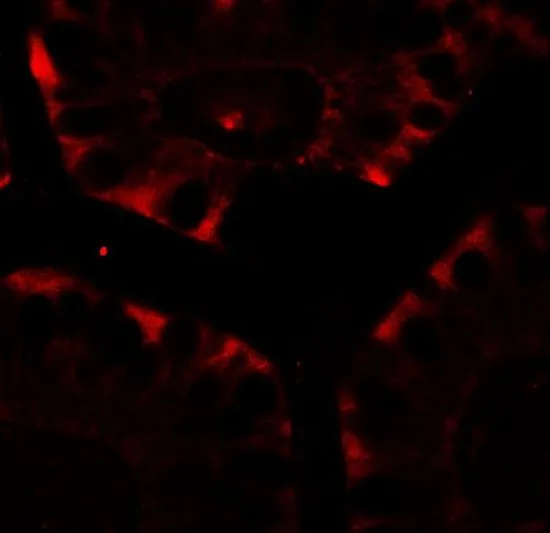
IHC-P analysis of human small intestine tissue using GTX31913 CFTR antibody. Working concentration : 20 μg/ml
CFTR antibody
GTX31913
ApplicationsWestern Blot, ELISA, ImmunoHistoChemistry, ImmunoHistoChemistry Paraffin
Product group Antibodies
ReactivityHuman, Mouse, Rat
TargetCFTR
Overview
- SupplierGeneTex
- Product NameCFTR antibody
- Delivery Days Customer9
- Application Supplier NoteWB: 1 - 2 microg/mL. IHC-P: 5 microg/mL. *Optimal dilutions/concentrations should be determined by the researcher.Not tested in other applications.
- ApplicationsWestern Blot, ELISA, ImmunoHistoChemistry, ImmunoHistoChemistry Paraffin
- CertificationResearch Use Only
- ClonalityPolyclonal
- Concentration1 mg/ml
- ConjugateUnconjugated
- Gene ID1080
- Target nameCFTR
- Target descriptionCF transmembrane conductance regulator
- Target synonymsABC35, ABCC7, CF, CFTR/MRP, MRP7, TNR-CFTR, dJ760C5.1, cystic fibrosis transmembrane conductance regulator, cAMP-dependent chloride channel, channel conductance-controlling ATPase, cystic fibrosis transmembrane conductance regulating, cystic fibrosis transmembrane conductance regulator (ATP-binding cassette sub-family C, member 7)
- HostRabbit
- IsotypeIgG
- Protein IDP13569
- Protein NameCystic fibrosis transmembrane conductance regulator
- Scientific DescriptionThis gene encodes a member of the ATP-binding cassette (ABC) transporter superfamily. ABC proteins transport various molecules across extra- and intra-cellular membranes. ABC genes are divided into seven distinct subfamilies (ABC1, MDR/TAP, MRP, ALD, OABP, GCN20, White). This protein is a member of the MRP subfamily that is involved in multi-drug resistance. The encoded protein functions as a chloride channel and controls the regulation of other transport pathways. Mutations in this gene are associated with the autosomal recessive disorders cystic fibrosis and congenital bilateral aplasia of the vas deferens. Alternatively spliced transcript variants have been described, many of which result from mutations in this gene. [provided by RefSeq, Jul 2008]
- ReactivityHuman, Mouse, Rat
- Storage Instruction-20°C or -80°C,2°C to 8°C
- UNSPSC12352203

